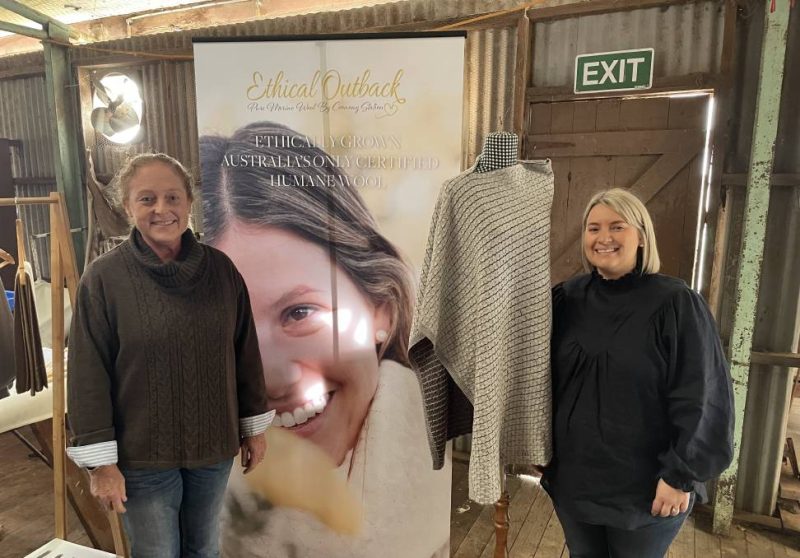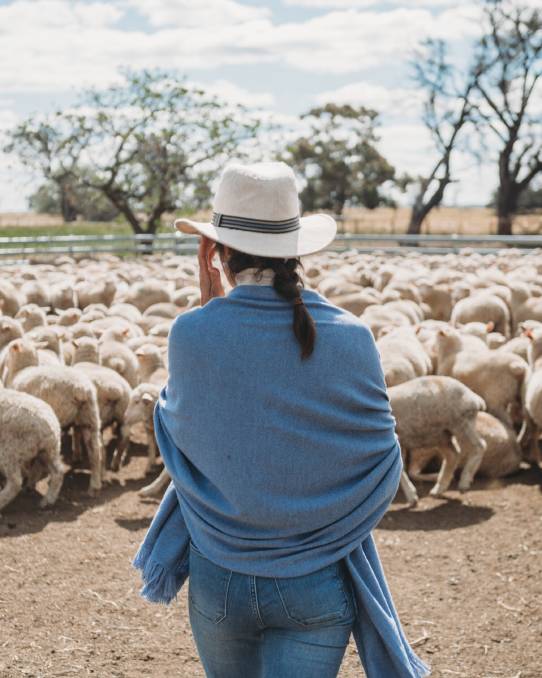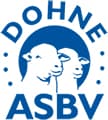Wool from farm to you
The Land By Stephen Burns
The problems associated with having her home grown wool processed into garments and other woollen products was made only to obvious to Sophie Holt, when she set out on her journey to process the lambs wool grown on the Dohne sheep, she and her husband Tom raise on the family property Coonong Station, Urana.

It was a journey which was at times frustrating, not the least when Mrs Holt realised the extent of the loss of the woollen manufacturing capability in this country.
But it was ultimately rewarding to see her Dohne wool processed into blankets and jumpers and which are in demand from ethically aware consumers conscious of supporting a process of production and processing that does little harm to the sheep and the environment.
“We process our Dohne wool into blankets and jumpers,” Mrs Holt said.
“Its all Coonong Station Dohne wool and we sell it under the name Ethical Outback and is sold online and at various shows.”
Coonong Station was historically associated with Sir Samuel McCaughey, pastoral entrepreneur, Merino breeder and irrigation pioneer during that late 19th century.
But in the hands of the Holt family, Dohne sheep are raised for their dual-purpose of fleece and carcass.
“We process our Dohne fleeces domestically and we have the main portion of our fleece’s made into blankets,” Mrs Holt said.
Processing their own wool started twenty years ago offered some lambs wool and it was passed in at auction, and she made an on-the-spot decision which changed the approach to the business.
“Tom was away which was the only reason why I would have made such a ridiculous decision,” she said. “But Lachie [Brown, Elders Melbourne wool store] rang up and asked what I wanted to do with the lambs wool which had been passed in.
“And I said for some reason – you know what, lets send it to the store and I’m going to process it domestically, make it my own lambs wool blanket and he said – mmm I don’t think that can be done.”
But the first hurdle Mrs Holt encountered was the lack of domestic processing capability, which threatened to turn her dream upside down.
“We can’t process our lambs wool domestically – the machinery is not here anymore in Australia to spin yarn from fibre that is shorter than 70mm,” she said
“I got all excited about processing my lambs wool and I told Lachie to send it down to Geelong and get it washed and turn it into tops but literally the machinery is not here.
“And I even went as far as sending it to CSIRO because they have a Pima cotton machine and I tried to send it through a Pima cotton machine which can handle very short fibres but the machine couldn’t handle the static from the wool.”
When Mrs Holt realised the limitations of processing wool in Australia, and the demand for Australian made product was immense, she encountered further obstructions within the wool industry.
“We don’t have a love affair with wool in Australia, its hot, we don’t have the climate,” she said.
“We still think that wool is itchy so there is a small amount of clients through people who want to sell woollen jumpers.”
Mrs Holt admitted she has been through a steep learning curve especially understanding wool and what was needed to get wool ready for the spinners and that was where the support of Mr Brown at Elders wool was so helpful.
“When we had our first clip washed, I was determined that we use no chemicals or dye that it was water washed,” she said.
“It was the first Dohne fleece they had ever processed and still we are the only Dohne fleece they process and they said we can’t do anything with this.”
At that stage, Mrs Holt was reading to toss in the whole dream.
“But Tom said no keep pushing them – I’ve heard that it washes really terribly but turns into a beautiful top,” she said.
“So we encouraged them to turn it into tops and it was beautiful tops.
“So I do not know why but it is the ugliest washed wool ever but the softest and the best handled and the brightest top wool.”
Mrs Holt ascribes the pure softness of the Dohne wool for their success.
“That is what the processor struggled with without the added chemicals,” she said.
“The drape and the handle is a constant feedback and they are asking me where am I managing to get the drape and the handle and I can’t explain other than its Dohne.”
Mrs Holt said they have taken the route of being certified humane wool and have become the first outside of America, the first in Australia and that is attached to their garments.
“We’ve had massive demand for our Australian made woollen products and especially those no dye, no chemical garments going to North America which are certified humane,” she said.
“That has been a real success for us.”











 Facebook
Facebook YouTube
YouTube Instagram
Instagram